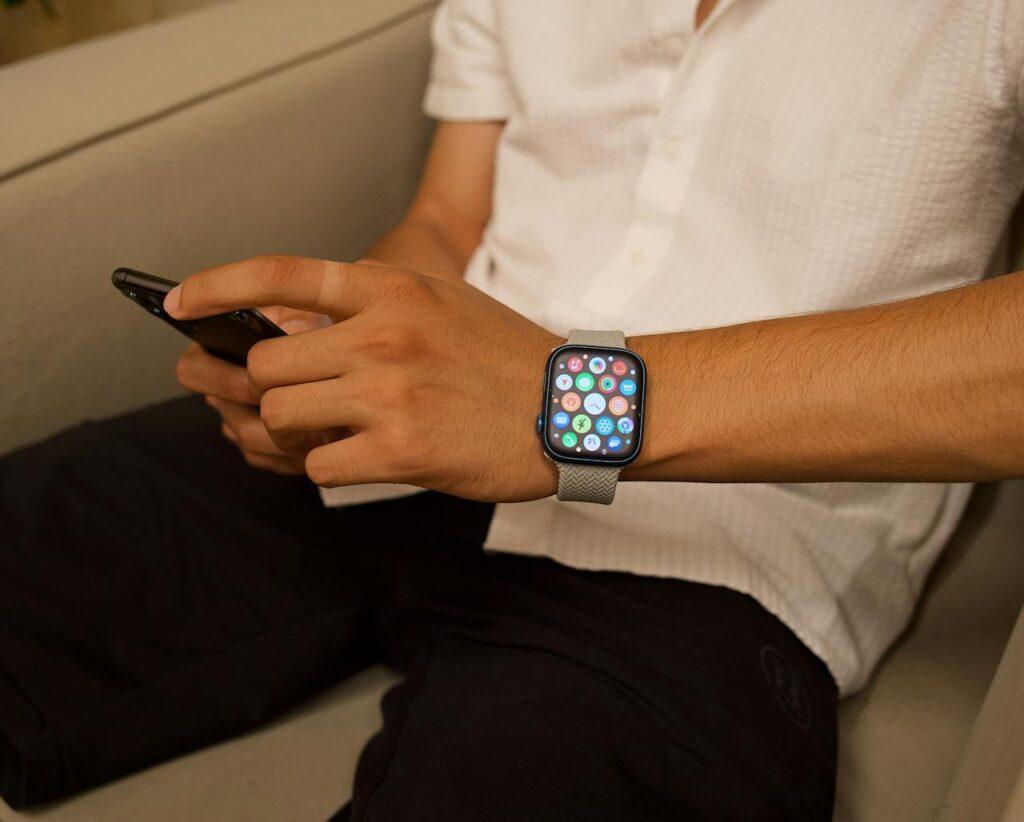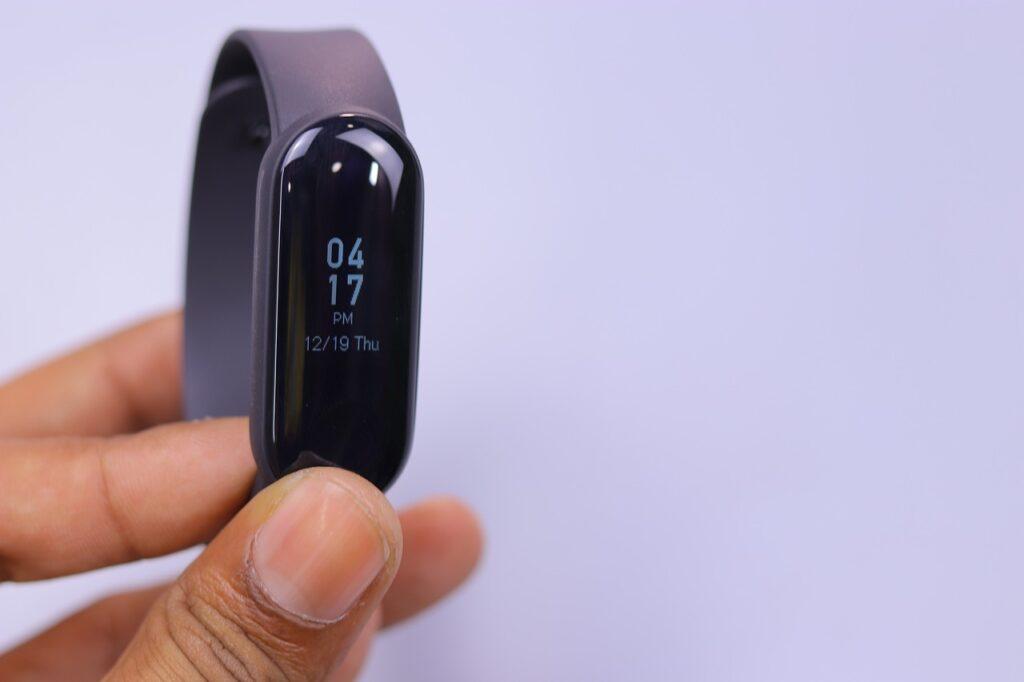Smartwatch vs. Fitness Tracker: Which One Should You Choose?
In today’s world, where technology plays a crucial role in our daily lives, the choice between a smartwatch and a fitness tracker can be a daunting task. Both devices offer unique features and cater to different needs, but how do you decide which one is right for you? Don’t worry; we’ve got you covered. This comprehensive guide will break down the key differences between smartwatches and fitness trackers, helping you make an informed decision that aligns with your lifestyle and goals.
Contents
Understanding Smartwatches
A smartwatch is a wearable device that not only tells time but also offers a wide range of smart features. Think of it as a miniature computer on your wrist. These nifty gadgets are designed to keep you connected, organized, and entertained, all while keeping an eye on your fitness and health.

At their core, smartwatches are packed with features like notifications for emails, messages, and social media updates, allowing you to stay in the loop without constantly reaching for your phone. Many smartwatches also offer app integration, enabling you to access various applications directly from your wrist. Imagine being able to control your music, check the weather, or even make payments with just a tap or two.
But wait, there’s more! Smartwatches often come equipped with voice assistants like Siri, Google Assistant, or Alexa, making it easier to set reminders, ask questions, or even control smart home devices with simple voice commands.
Some popular smartwatch brands and models include the Apple Watch, Samsung Galaxy Watch, Fitbit Sense, and Garmin Venu series, among others.
Understanding Fitness Trackers
Fitness trackers, on the other hand, are wearable devices designed specifically for tracking and monitoring your physical activity and overall health. These compact gadgets are the perfect companions for fitness enthusiasts, helping you stay motivated and accountable on your fitness journey.

At their core, fitness trackers excel at tracking your steps, distance covered, calories burned, and even monitoring your heart rate during workouts. Many also offer sleep-tracking capabilities, providing insights into your sleep patterns and quality.
Advanced fitness trackers often come equipped with built-in GPS, allowing you to map your outdoor activities like running, cycling, or hiking, and even providing detailed performance metrics.
Popular fitness tracker brands and models include Fitbit’s Charge and Inspire series, Garmin’s Vivosmart and Vivofit lines, and Xiaomi’s Mi Band collection.
Factors to Consider When Choosing Between a Smartwatch and a Fitness Tracker
Now that you have a basic understanding of what smartwatches and fitness trackers are, let’s dive into the key factors you should consider when making your choice:
1. Purpose and use cases
Are you primarily interested in fitness tracking and monitoring your health, or do you need a device that can also handle productivity tasks, notifications, and entertainment? Identifying your primary needs will help you determine which device better suits your lifestyle.
2. Budget and price range
Smartwatches tend to be more expensive than fitness trackers, with prices ranging from $200 to $800 or more for high-end models. Fitness trackers, on the other hand, can be found for as little as $100, making them a more budget-friendly option for those focused solely on tracking their fitness.
3. Style and design preferences
Smartwatches often have a more stylish and versatile design, allowing you to wear them in various settings, from the office to a night out. Fitness trackers, while sleek, are typically more sporty and utilitarian in their appearance.
4. Battery life and charging requirements
Fitness trackers generally have longer battery life, often lasting up to a week or more on a single charge. Smartwatches, with their more power-hungry features, typically need to be charged every day or every other day.
Pros and Cons of Smartwatches
Advantages of Smartwatches:
1. Versatility
Smartwatches offer a wide range of features beyond just fitness tracking, including productivity tools, entertainment options, and smartphone integration, making them a versatile all-in-one device.
2. Notifications and connectivity
With a smartwatch, you can stay connected and receive notifications for calls, messages, emails, and social media updates, without having to constantly check your phone.
3. Voice assistants
Many smartwatches come with built-in voice assistants like Siri, Google Assistant, or Alexa, allowing you to perform various tasks and control smart home devices with simple voice commands.
4. Style and customization
Smartwatches often have a sleek and stylish design, with many options for customization through different watch faces, bands, and accessories.
Disadvantages of Smartwatches:
1. Shorter battery life
Due to their power-hungry features, smartwatches typically require charging every day or every other day, which can be inconvenient for some users.
2. Higher cost
Smartwatches can be significantly more expensive than fitness trackers, with high-end models costing upwards of $800.
3. Potential distractions
With the constant stream of notifications and access to apps, smartwatches can be a source of distraction, potentially hindering productivity or mindfulness.
Pros and Cons of Fitness Trackers
Advantages of Fitness Trackers:
1. Focus on health and fitness
Fitness trackers are designed specifically for tracking physical activity, monitoring vital signs, and promoting a healthy lifestyle, making them an excellent choice for fitness enthusiasts.
2. Longer battery life
With their more limited functionality, fitness trackers typically offer longer battery life, often lasting up to a week or more on a single charge.
3. Affordable options
There are many affordable fitness tracker options available, with some models costing as little as $100, making them accessible to a broader range of budgets.
4. Simplicity and ease of use
Fitness trackers are generally straightforward and easy to use, with a primary focus on tracking fitness metrics and providing motivational insights.
Disadvantages of Fitness Trackers:
1. Limited functionality
While fitness trackers excel at tracking physical activity and health metrics, they offer limited functionality beyond those core features, lacking the versatility of smartwatches.
2. Fewer smart features
Fitness trackers typically lack advanced features like voice assistants, app integration, and extensive notification capabilities found in smartwatches.
3. Style and design:
While fitness trackers are sleek and functional, they often have a more sporty and utilitarian design, which may not suit all occasions or personal styles.
Making the Choice
Now that you’ve explored the pros and cons of both smartwatches and fitness trackers, it’s time to make your choice. Here are some recommendations based on different use cases:
If you’re a fitness enthusiast who prioritizes tracking physical activity, monitoring vital signs, and staying motivated on your fitness journey, a dedicated fitness tracker might be the way to go. These devices are specifically designed to cater to your active lifestyle, offering features like step counting, heart rate monitoring, GPS tracking, and sleep analysis, all while providing long battery life and an affordable price point.
On the other hand, if you’re looking for a device that can not only track your fitness but also serve as a versatile digital companion for productivity, entertainment, and seamless smartphone integration, a smartwatch may be the better choice. Smartwatches offer a wide range of features beyond just fitness tracking, including the ability to receive notifications, access apps, control smart home devices, and even make calls or send messages directly from your wrist.
However, it’s important to consider your budget and personal preferences. If you’re on a tight budget or primarily focused on fitness tracking, a fitness tracker might be the more cost-effective and practical option. Conversely, if you have the means and desire for a more sophisticated and versatile device, investing in a high-end smartwatch could be worthwhile.
Ultimately, the choice between a smartwatch and a fitness tracker comes down to your individual needs, lifestyle, and priorities. Take the time to evaluate your goals, analyze the features that matter most to you, and make an informed decision that aligns with your preferences.
We hope this comprehensive guide has provided you with the insights you need to make an informed decision about which wearable device is best for you. If you have any further questions or thoughts, feel free to share them in the comments section below. We would love to hear your thoughts and answer any questions you may have.
FAQs
Many fitness trackers do offer basic notification capabilities, allowing you to view incoming calls, text messages, and app alerts from your connected smartphone. However, the level of notification customization and interaction is generally more limited compared to smartwatches.
Most modern smartwatches from reputable brands offer reasonably accurate fitness tracking capabilities, including step counting, heart rate monitoring, and GPS tracking for outdoor activities. However, dedicated fitness trackers may still have an edge in terms of accuracy and specialized tracking features for specific sports or activities.
Many smartwatches, particularly those from major brands like Apple, Samsung, and Garmin, offer cellular connectivity options that allow you to make and receive phone calls directly from your wrist, without needing your smartphone nearby. Most fitness trackers, however, do not have this capability and rely on being connected to a smartphone for any calling functions.
Battery life can vary greatly between devices, but generally, fitness trackers have longer-lasting batteries compared to smartwatches. Fitness trackers can often last up to a week or more on a single charge, while smartwatches typically need to be charged every day or every other day, depending on usage and features.
This depends on the specific device and its water resistance rating. Many modern smartwatches and fitness trackers offer water resistance up to a certain depth (e.g., 50 meters or 5 ATM), allowing you to wear them while swimming or showering. However, it’s crucial to check the manufacturer’s recommendations for your specific device to ensure adequate water protection.
Most popular smartwatch and fitness tracker brands offer compatibility with both Android and iOS smartphones, allowing you to sync data and receive notifications regardless of your smartphone’s operating system. However, some features or integrations may be more seamless or exclusive to specific ecosystems, such as Apple Watch’s tight integration with iPhones or Samsung’s Galaxy Watch lineup working best with Android devices.